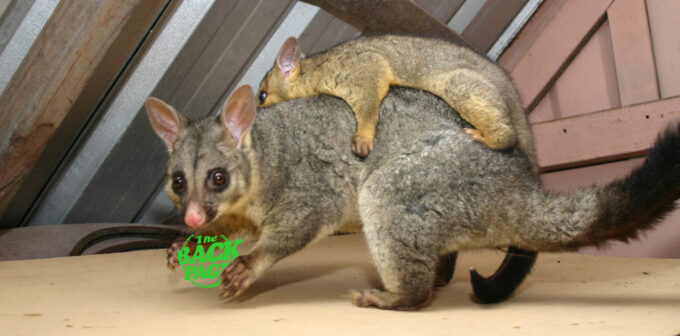
Ringtails carry the Buruli ulcer bug, but the BCG vaccine may help them and us.
We like a good gross-out at Dermatology Republic. Our nerves, unlike yours, dear medically trained readers, remain largely intact and there is still a thrill to be had in seeing body parts gone terribly wrong.
Don’t tell publicists, but the best way to get us to click on something is to post it with an “argh DO NOT click on this picture [vomit emoji]” warning.
Last week we enjoyed a pus-filled image of the flesh-eating Buruli ulcer, caused by Mycobacterium ulcerans. This little baddie has found its way for the first time from Victoria into NSW – more precisely, into a resident of Batemans Bay who had not been to any areas where it is endemic.
A perspective piece in the MJA says the once-rare infection, first identified in Victoria in 1948, has increased its prevalence five-fold over the past decade, with 340 cases in 2022, and spread into the Geelong surf coast, Geelong proper and even some suburbs of Melbourne.
Mosquitoes are thought to be involved in transmission, but the authors have a different vector in their sights: possums.
Possums have been implicated in M. ulcerans transmission for almost two decades now, they say, and recent evidence has made the link stronger, with a large case-control study showing “a greatly increased risk of [Buruli ulcer] among people reporting the presence of possums on their property, with a dose-response effect suggested by more possums reported correlating with a higher risk of BU”. Analysis of possum faeces where the cases and controls lived showed a large proportion had M. ulcerans in viable form, making it a potential a source of transmission without the need to be bitten by a possum.
But if you do happen to be bitten by a possum like this guy, you could end up having your flesh eaten twice.
The Back Page lives a fairly long way from Victoria, and Batemans Bay, but this is still cause for alarm as our back yard is regularly strewn with possum scat. A few years ago we started leaving food out for possums to stop them raiding our kitchen, and there was one who was so human-friendly that she would politely take pieces fruit from your hand.
We’re not proud of that, but what can we say? Our possums, unlike the terrifying American ones, are adorable.
This is something the writers of the MJA perspective appreciate: they say culling possums would “likely result in significant public anger”, and anyway they’re protected.
They propose instead vaccinating ringtail possums with an oral bait bacille Calmette-Guérin vaccine in the wild, which would protect the possums from disease as well as humans.
Oral bait BCG has already been successful in controlling bovine tuberculosis in possums, they write, and mice given BCG are immune to Buruli ulcer. Human trials way back in the 60s and 70s also found BCG conferred short-lived but significant immunity from BU.
The mysteries of the BCG vaccine!
For now, the Back Page has two bits of counsel: don’t hand-feed possums and avoid Victoria.
Today’s gross-out, if you’re curious, was this tale of a young woman who injured herself on coral 20 years ago and finally presented to doctors with a “painless but cosmetically bothersome chronic indolent lesion on her left knee” – which turned out to be a Mycobacterium marinum infection.
Open Box 1 in the paper to view the lesion and test whether you still have any capacity for surprise.
Send stories and images of medical misadventure, with content warnings, to penny@medicalrepublic.com.au.

